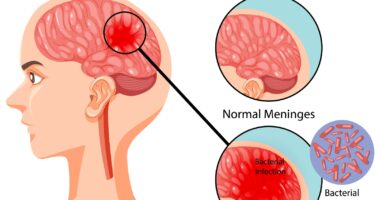Vaccines are a cornerstone of public health, effectively preventing numerous diseases that can lead to severe complications, hospitalizations, or even death. Understanding the significance of vaccinations and the diseases they prevent is essential for maintaining community health. This blog will explore the top 15 vaccine-preventable diseases, highlighting their impact and the vaccines available to protect against them.
1. Measles
Measles is a highly contagious viral disease that can lead to serious complications such as pneumonia and encephalitis. The measles vaccine (MMR) is highly effective, and a two-dose schedule is recommended for children.
2. Mumps
MMR vaccine protects against mumps, a viral disease, and Mumps is no match for the power of prevention with the MMR vaccine. It can cause swelling of the salivary glands, fever, and, in some cases, complications such as orchitis or meningitis.
3. Rubella
Rubella, also known as German measles, can cause severe congenital disabilities if contracted during pregnancy. The MMR vaccine protects against this disease, making it crucial for women of childbearing age to be vaccinated.
4. Diphtheria
Diphtheria is a bacterial infection affecting the throat and nose, leading to difficulty breathing and swallowing. The DTaP vaccine (diphtheria, tetanus, and pertussis) effectively prevents this disease, especially in children.
5. Tetanus
Tetanus, often known as lockjaw, is a life-threatening disease caused by a bacterial toxin. The DTaP vaccine is essential for children, while booster shots are recommended for adults every ten years.
6. Pertussis
Did you know that pertussis, also known as whooping cough, is a highly contagious respiratory disease? The DTaP vaccine significantly reduces the risk of infection, and adolescents and adults should receive a Tdap booster for ongoing protection.
7. Polio
Polio is a viral disease that can lead to paralysis and even death. The inactivated poliovirus vaccine (IPV) has been instrumental in eradicating polio in many parts of the world, but vaccination remains crucial to prevent outbreaks.
8. Hepatitis A
Hepatitis A is a liver infection caused by the hepatitis A virus, primarily spread through contaminated food and water. The hepatitis A vaccine is recommended for travellers to high-risk areas and certain high-risk groups.
9. Hepatitis B
Hepatitis B is a severe liver infection transmitted through contact with infectious body fluids. The hepatitis B vaccine is part of the routine childhood vaccination schedule and is critical for high-risk populations.

10. Human Papillomavirus (HPV)
HPV is the most common sexually transmitted infection and can lead to cervical cancer and other cancers. The HPV vaccine is recommended for preteens and young adults to reduce the risk of HPV-related cancers.
11. Influenza
Influenza, or the flu, is a contagious respiratory illness that can lead to severe complications, especially in high-risk populations. Did you know it’s recommended for everyone six months and older to get the annual influenza vaccine? It’s an essential step in keeping yourself and your community healthy.
12. Pneumococcal Disease
Pneumococcal disease has the potential to lead to severe conditions such as pneumonia, meningitis, and bloodstream infections. Vaccines such as PCV13 and PPSV23 help protect vulnerable populations, including young children and older people.
13. Meningococcal Disease
Meningococcal disease can lead to meningitis and septicemia. The meningococcal vaccine is crucial for adolescents and college students living in dormitories, where outbreaks can occur.
14. Rotavirus
Rotavirus is a highly contagious virus that commonly affects infants and young children, causing severe diarrhoea and vomiting. It is a significant cause of gastroenteritis and can lead to dehydration, hospitalization, and, in some cases, death. Vaccination is an effective way to prevent the spread of rotavirus and protect children from its severe effects. The rotavirus vaccine prevents hospitalizations and serious illness due to dehydration in young children.
15. Chickenpox (Varicella)
Chickenpox is a highly contagious viral infection that can lead to severe skin infections and complications. The varicella vaccine effectively prevents chickenpox and its associated complications.
The Importance of Vaccination
Vaccines play a crucial role in preventing the transmission of infectious diseases. By getting vaccinated, individuals protect themselves and contribute to the community’s overall immunity, known as herd immunity. This is particularly important for those who cannot be vaccinated, such as infants or individuals with certain medical conditions.
Conclusion
Vaccinating is a safe and effective way to shield yourself against the top 15 vaccine-preventable diseases. By ensuring that you and your family are up to date on vaccinations, you play a vital role in promoting public health and preventing outbreaks. Consult your healthcare provider about the vaccines recommended for you and your loved ones. Let’s join forces to create a healthier future for everyone.
By understanding the importance of vaccines and their role in preventing these diseases, we can help ensure the health and safety of our communities for generations to come.









